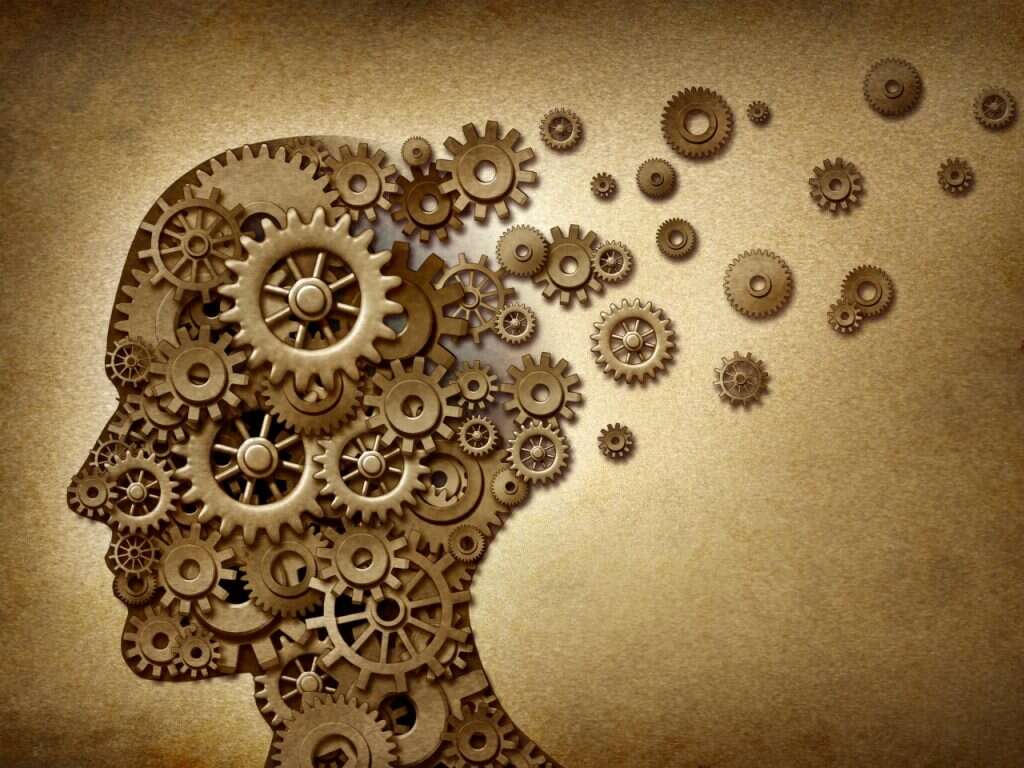10 Symptoms of Schizophrenia
Of all the mental conditions that we know off, schizophrenia is perhaps the most stigmatized 1https://www.nimh.nih.gov/health/topics/schizophrenia/index.shtml. Unfortunately, the stigma is not without good reason as it can result in some very extreme and unusual symptoms. However, not all symptoms of schizophrenia are bizarre or extreme, and many people do lead relatively normal lives after being diagnosed with the condition.
Some of the most notable and alarming symptoms include delusions and hallucinations. People with schizophrenia can also have very erratic speech and unpredictable actions. Some symptoms are less noticeable to others but can still be very destructive to the person with the condition.

Symptom #1: Delusions
For the most part, we live our lives according to the reality of what is going on around us. We can separate fact from fiction and not be affected by hypothetical or fictional situations. However, for people suffering with schizophrenia, this is not always the case. They often suffer from delusions, convinced that such fantasy or fiction is very real indeed.
With delusions, schizophrenia sufferers might be convinced that something terrible is about to happen despite there being no reason to believe it. They are often convinced that people are trying to harm them when it is simply not true. They can also be deluded into believing that they are suffering from fictional illnesses that they just don’t have.

Symptom #2: Hallucinations
Our brains and sensory organs allow us to perceive the things around us. Information comes in through our eyes, ears, nose, mouth, and skin, and is translated into something we can make sense of. However, when the brain is not translating as it should be, things can get very confusing.
People with schizophrenia will sometimes suffer from hallucinations. They will see, smell, hear and feel things that are just not there. Usually, this manifests itself by way of imaginary voices in their head. These voices are often telling them what to do and the instructions are usually not beneficial.

Symptom #3: Ideas of Reference
There is a great deal of information going on around us all the time. For the most part, we are able to filter out those things that are not relevant to us and focus on what matters. After all, much of what is happening around us has nothing whatsoever to do with us personally.
However, for people with schizophrenia anything around them might be directly connected to them personally. They can feel that a song or TV show is all about them and that there is some message that is being conveyed. They might even be convinced that there are messages in the simplest of things, such as in the colors of the wallpaper or in the order in which colored objects appear.

Symptom #4: Apathy
Life is full of wonderful activities to get involved in. No matter what our personal interests may be, most of us have some activities that we look forward to whenever we get the chance. Such interests often give us a reason to get up in the morning and help us to lead genuinely fulfilling lives.
People with schizophrenia, however, tend to find that such activities are of no interest to them. They no longer feel like getting involved, and the apathy spreads to all parts of their life. They can lose all interest in keeping themselves or house clean. They also can lose all interest in life in general and not be motivated to perform even the smallest of tasks.

Symptom #5: Paranoia
Most of us know that the world is not perfect. Things can go wrong and there are even some people out there with nefarious intentions. Generally, we recognize that we are quite safe with little chance of people out to get us. For someone with schizophrenia though, it can be easy to think that people are out to deliberately hurt them.
Paranoia is a fairly common symptom among people with schizophrenia. It can range from fairly mild, causing some degree of discomfort, to downright debilitating. Paranoia can lead to people locking themselves away in a room to keep themselves safe from the perceived threats outside.

Symptom #6: Erratic Thoughts And Speech
As humans, we spend a lot of time thinking. It can be about pleasurable things or serious matters such as jobs or difficulties with people in our lives. When thinking we tend to focus on one thing and try to work it out in our heads. It helps us to find the answers we need to make our lives go as smoothly as possible.
For people with schizophrenia, maintaining a train of thought can be very difficult. They are often unable to focus on one topic, constantly switching from on thing to another. This is often noticeable in their speech as they struggle to put together coherent sentences that make any sense.

Symptom #7: Erratic Behavior
Our days often involve a lot of routine. We have tasks to do and there are certain ways in which these tasks should be completed in order to achieve our goals. Routines help us to look after ourselves on a daily basis and even include simple things such as keeping the home clean.
For people with schizophrenia, routines and organization can be very difficult to manage, even with the simplest of tasks. Instead, schizophrenia leads to behavior which becomes erratic and unusual with no apparent goal. Schizophrenics can also become impulsive and very unpredictable.

Symptom #8: Cognitive Decline
Patients with schizophrenia can suffer from working memory problems, which can be seen as a person being forgetful of recent events.
Interpersonal interactions and social cues can become hard for patients suffering from schizophrenia as well.

Symptom #9: Blunted Affect
In addition to speech, we have numerous other ways of communicating with each other. Our facial expressions alone can tell people all they need to know, while our body language can also convey messages to people around us. These expressions are usually done involuntarily and are methods of communication we often take for granted.
Blunted affect is a medical term for people that are unable to express emotions through facial expressions or body language. It is a common symptom suffered by schizophrenics, as they will not smile, frown, or show any body language in response to other people around them. Their faces are likely to remain completely unchanged regardless of what is being said, and they are also likely to make little or no eye contact.

Symptom #10: Social Withdrawal
We tend to value our friends and family and look forward to spending time with them whenever we get the chance. Our spare time often involves activities with other people, and we can even enjoy the company of others at work. Social interaction is important to us as a species and our mental health can suffer if we are separated from others for too long.
People with schizophrenia, however, will begin to lose interest in other people. Even their closest friends and family will no longer be appealing to them. They will spend more and more time alone, eventually becoming completely isolated if allowed to do so.












